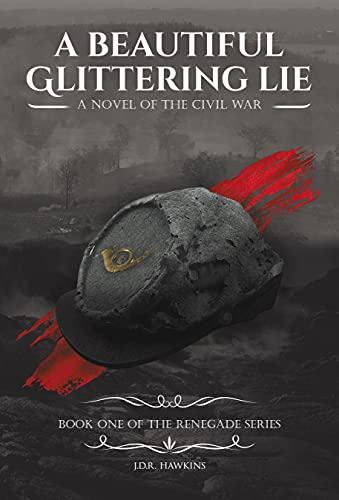The Psychological Toll of Gettysburg: What Fiction Can Teach Us

When we think of Gettysburg, we often picture the physical toll: the thousands of lives lost and the countless wounded. But the battle also left a deep emotional scar, one that fiction can help us understand in ways that history books sometimes don’t. At the same time, historical records provide facts and figures; historical fiction about Gettysburg taps into the psychological and emotional experiences of those involved.
Fiction adds a layer of humanity to the cold, hard facts of war. It allows us to step into the shoes of soldiers, civilians, and leaders, offering a glimpse into their thoughts, fears, and hopes. Through storytelling, we’re able to explore the mental toll that battles like Gettysburg take on individuals and communities.
The Weight of Fear and Anxiety
For the soldiers fighting in Gettysburg, fear and anxiety were constant companions. Imagine standing on a battlefield surrounded by gunfire, not knowing if the next shot will hit you or the person beside you. While history may tell us the outcome, fiction dives into the moment-to-moment fear felt by those in the thick of battle. This helps readers connect with the mental anguish soldiers experienced.
Historical fiction about Gettysburg often highlights this fear and uncertainty, showing how the human mind struggles under the weight of constant danger. By doing so, it makes us more aware of the unseen effects of war — the emotional wounds that don’t always heal.
The Trauma of Loss
One of the biggest psychological tolls of war is the trauma of losing comrades, family, and even parts of oneself. Fiction gives us a front-row seat to this kind of suffering. When soldiers witness their friends fall in battle, or when civilians lose loved ones, the trauma can be crippling. The emotional pain doesn’t end when the battle does. It lingers, affecting them for years, if not the rest of their lives.
Through vivid storytelling, authors help us grasp the depth of this grief. Characters in historical fiction about Gettysburg deal with the heartache in different ways — some shut down, while others become determined to keep going despite their losses. This range of emotional responses gives us a clearer understanding of the human side of war.
Post-Traumatic Stress and Resilience
Long before the term “PTSD” existed, people who survived battles like Gettysburg were dealing with its effects. Nightmares, flashbacks, and emotional numbness were common. Soldiers may have returned home, but their experiences haunted many.
Fiction does an excellent job of portraying this lingering trauma. It shows us how people try to rebuild their lives after living through horrors. Some characters might suffer in silence, while others turn to unhealthy coping mechanisms. Others might show resilience, finding strength in the face of adversity. These stories teach us that recovery from psychological wounds is a complicated and deeply personal journey.
The Burden on Civilians
It wasn’t just soldiers who bore the psychological toll of Gettysburg. Civilians were also deeply affected by the battle. Families lost loved ones, towns were destroyed, and people were forced to flee their homes. Historical fiction often portrays the emotional struggles of civilians, showing how they coped with the chaos and loss around them.
Civilians might not have been on the front lines, but their mental health was still impacted. Fiction can illustrate how townspeople dealt with fear, loss, and the uncertainties of war. These stories shed light on the broader impact of battles like Gettysburg, reminding us that war affects everyone, not just those in uniform.
Fiction as a Tool for Empathy
One of the greatest strengths of fiction is its ability to foster empathy. By diving into the minds of characters who lived through Gettysburg, we’re able to see the war from multiple perspectives. Historical fiction about Gettysburg allows us to understand the inner conflicts of soldiers and civilians alike.
This kind of storytelling teaches us that war isn’t just about strategy and tactics. It’s about people. Fiction helps us connect emotionally with those who lived through traumatic events, making history feel more real and relevant. It reminds us that behind every battle statistic is a human being with a story.
Lessons for Today
Though Gettysburg took place more than 150 years ago, the psychological impacts of war are still relevant today. Veterans of modern conflicts deal with many of the same issues faced by those who fought in the Civil War. Fear, trauma, and loss are timeless struggles, and fiction helps bridge the gap between past and present.
By exploring the emotional realities of war through historical fiction, we gain a deeper understanding of the challenges faced by those who have served in any era. It also reminds us of the importance of providing support to those affected by conflict, whether they are soldiers or civilians.
Wrapping It Up
Gettysburg was more than just a turning point in the Civil War. It was a battle that left emotional scars on all involved. Through the lens of historical fiction about Gettysburg, we gain insight into the psychological struggles of soldiers and civilians alike. These stories teach us valuable lessons about fear, trauma, resilience, and empathy. And in doing so, they help us connect with the human side of history, showing that the emotional toll of war can be just as devastating as the physical one.







